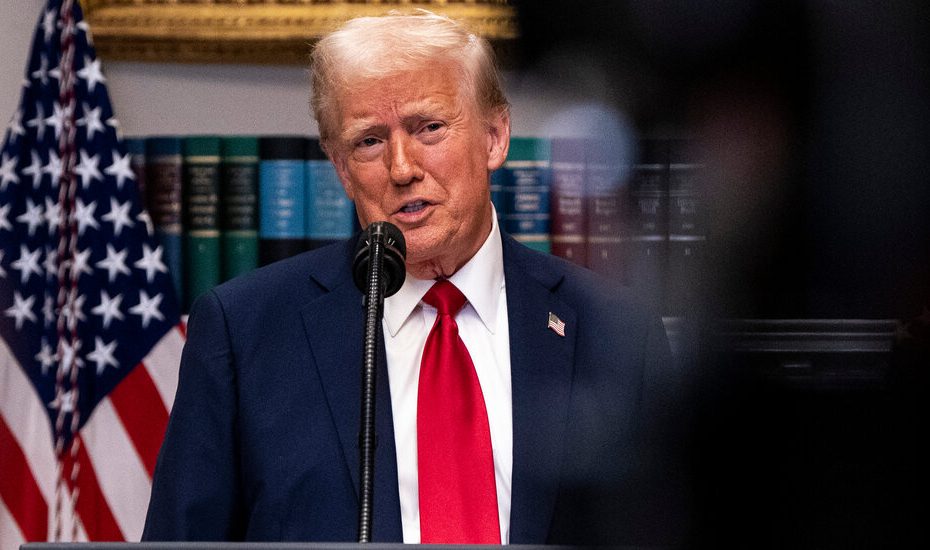President Trump said Tuesday he planned to impose a 10 percent tariff on Chinese imports into the United States on February 1, a decision sure to escalate trade tensions between the world's largest economies.
Speaking at the White House, Mr Trump said the tariffs were a response to China's role in the US fentanyl crisis. Mr. Trump said China was sending fentanyl to Canada and Mexico, from where it would be shipped to the United States.
The tariff threat comes after Mr. Trump said Monday he planned to impose a 25 percent tariff on imports from Canada and Mexico as punishment for allowing fentanyl and illegal immigrants to enter the United States.
“We're talking about a 10 percent tariff on China based on the fact that they're sending fentanyl to Mexico and Canada,” Trump said.
These tariffs would come on top of tariffs that Mr. Trump imposed on more than $300 billion of Chinese imports during his first term. These tariffs were maintained by former President Joseph R. Biden Jr., who imposed additional duties on Chinese electric vehicles, solar cells, semiconductors and advanced batteries.
Trump's pledge to hit China, Canada and Mexico with tariffs is expected to result in retaliatory measures against US industries. Economists have warned that a global trade war could revive inflation and weaken US economic growth.
Mr. Trump signed an executive order on Monday directing several agencies to study a wide range of trade issues with an eye on future tariffs, but he did not immediately impose new duties as he had previously threatened.
Instead, he ordered U.S. officials to investigate migrant and drug flows from Canada, China and Mexico into the United States, and the compliance of those three countries and others with their existing trade agreements with the United States.
Mr. Trump negotiated a new trade deal with Canada and Mexico during his first term: the United States-Mexico-Canada Agreement, or USMCA. He also agreed to a limited trade deal with China that would reward American farmers.
He has since said he wants to rewrite both agreements during his second term.
Mr. Trump and Xi Jinping, the Chinese president, spoke last week and discussed trade, fentanyl and areas where the world's two largest economies could work together.
After Trump's tariff action against China during his first term, he signed a broad economic deal in 2020.
Relations between the countries were roiled during the pandemic, which Mr Trump blamed on China, and Beijing failed to fulfill many of its commitments in the deal, including the purchase of US agricultural products.
Scott Bessent, Trump's pick of Treasury Secretary, said during his confirmation hearing last week that he planned to pressure his Chinese counterparts to start buying U.S. agricultural products, as their government had promised.
The Finance Ministry candidate also said he would put pressure on his Chinese counterparts to buy additional products to offset what the country had had to buy over the past four years.

